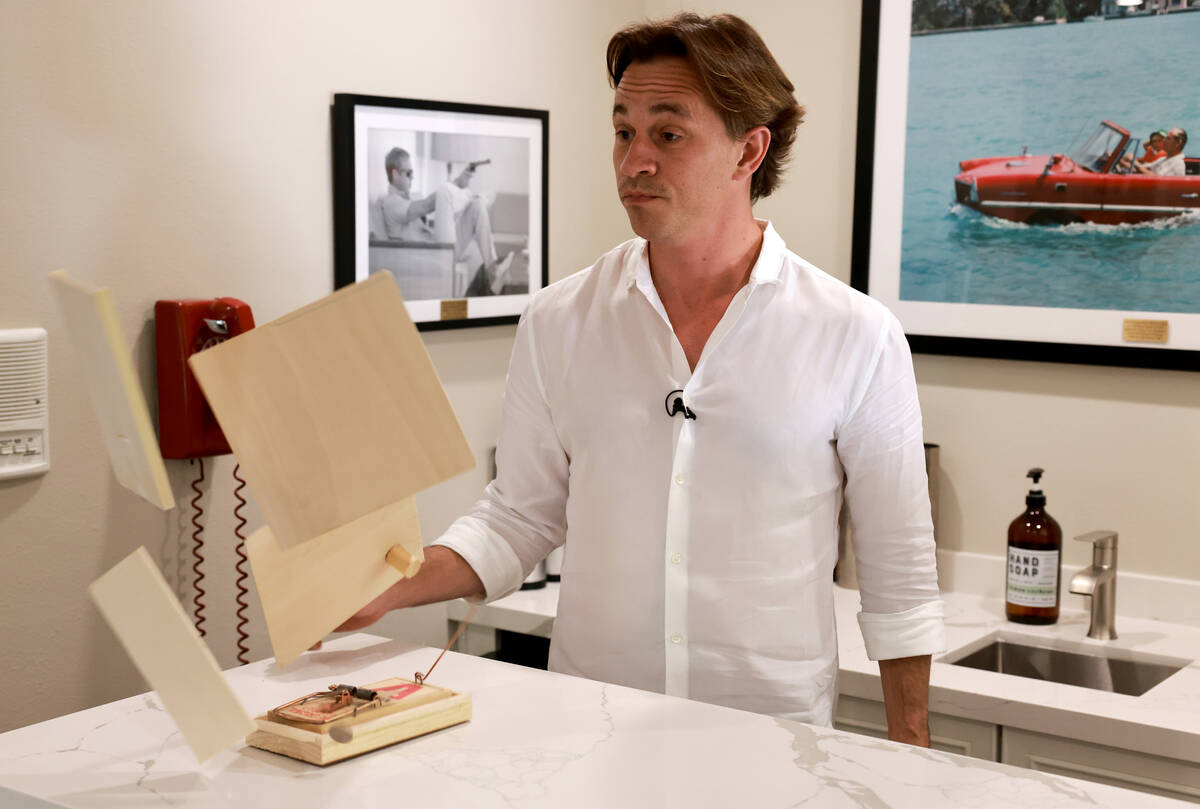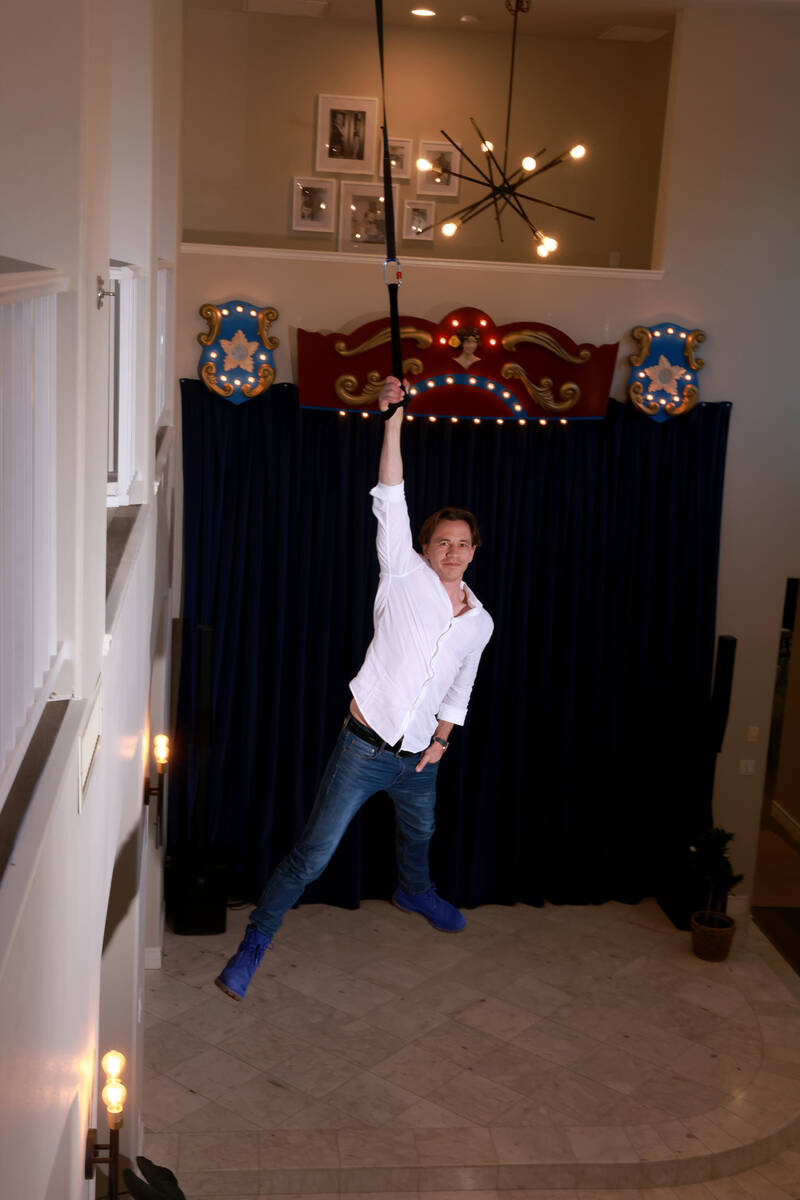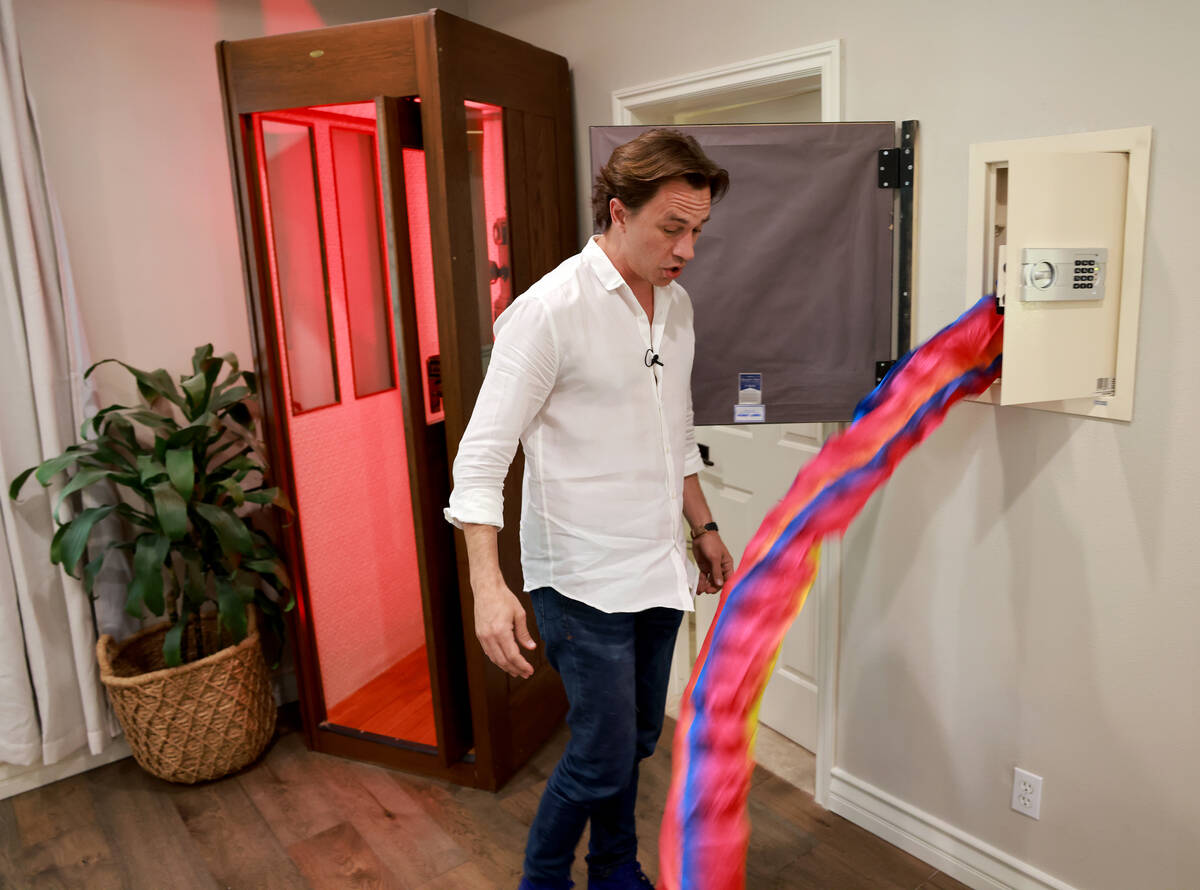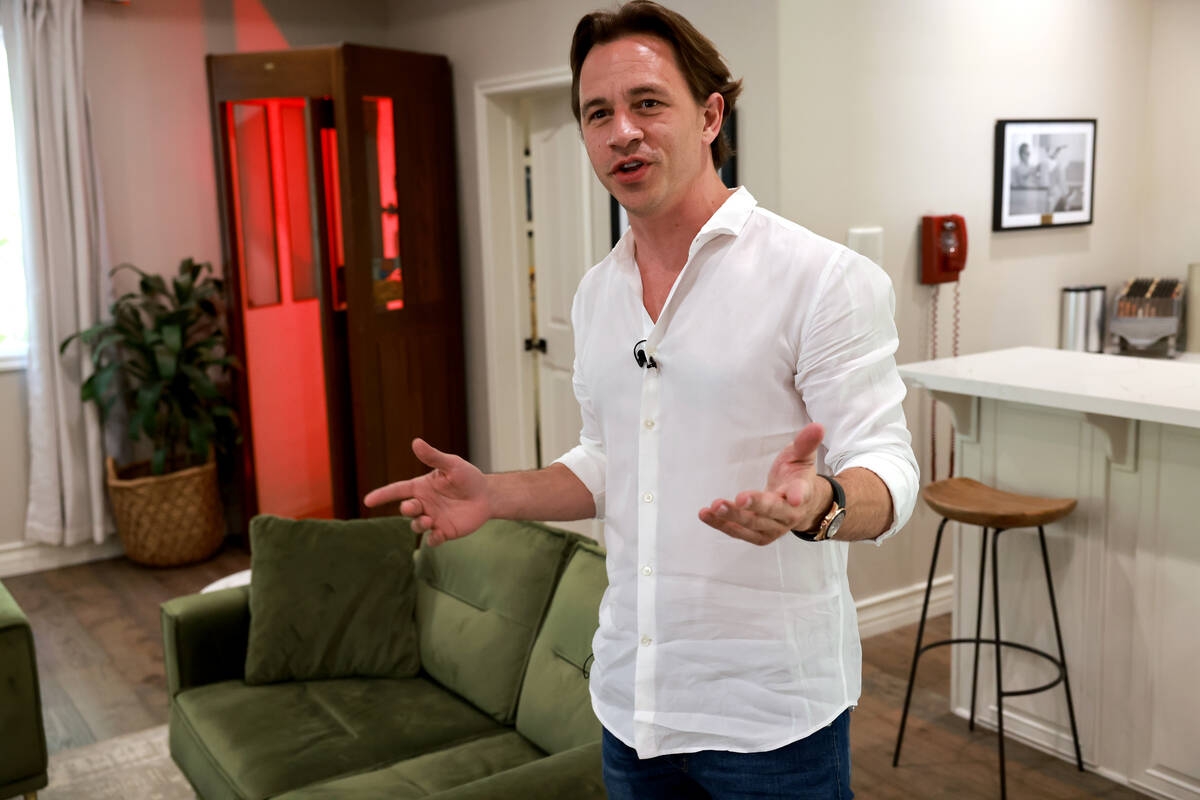To expose or not expose? Justin Flom rankles some in magic community
“I love magic exposure. I think it’s good, right, moral and the future of magic.”
If those aren’t exactly fighting words among magicians, they’re certainly enough to ruffle plenty of capes.
Justin Flom is appearing on the “The Magic Word” podcast hosted by Scott Wells, a longtime professional magician who was recently honored with a special fellowship from the Academy of Magical Arts for his contributions to the field.
The episode, titled “Justified?”, centers around the hot topic of magicians revealing trade secrets.
How heated is this issue? Wells tells us that he lost some magician friends simply by having Flom on his podcast to discuss his point of view.
“They felt again that I’m giving a platform to people who are against their belief system,” Wells says.
Flom is not alone when it comes to making these kinds of waves in the magic community of late: Fellow Vegas-based magician Murray Sawchuck recently resigned from the Magic Castle and the International Brotherhood of Magicians after drawing the ire of both this year by creating content exposing magic tricks.
This is nothing new: Magic icons such as Harry Houdini, Val Valentino (aka “The Masked Magician”) and Penn & Teller, to name a few, have all shown how certain tricks are done.
While Wells maintains a journalist-like objectivity while speaking with Flom on this debate, he makes it clear in an interview that he, too, opposes the practice of exposing trade secrets.
“What I don’t like is that some of the tricks are not theirs,” Wells explains. “If you were to invent a trick and you say, ‘Here’s how it’s done,’ that’s fine. But if this is someone else’s, then they shouldn’t necessarily be exposing someone else’s trick.
“Even if you’re working in a restaurant,” he continues, “and you’re doing magic table to table, when you go up to do a card trick and somebody says, ‘Oh, I saw that on TikTok,’ or, ‘I saw that on Insta,’ that’s part of what the issue is. We believe it’s bad that it’s being exposed.”
To hear Flom tell it, he’s simply helping the art form adapt to ever-changing viewer demands in the digital media era.
“The secrets of magic are very unique — and that would be a way to stop the swipe, to stop the scroll and make somebody pay attention,” Flom says. “If the secret is interesting, and the method is entertaining, and the audience would have arrived at the method anyway, give it to them. It’s better for everybody.
“I have yet to see anyone bring evidence that says that my video doing 100 million views exposing this secret harms these other magicians,” he continues. “I haven’t seen that, because ‘The Masked Magician’ exposed all the secrets and magic for millions and millions of people, and we still do all those magic tricks just fine.”
Penn Jillette expresses a similar sentiment.
“Exposing magic is no more dangerous than saying, ‘These are the chords Bob Dylan uses on ‘Blood on the Tracks,’” Jillette says. “It is an insult to the art to say that the whole thing is the secret. ‘Hey, here are the chords to ‘Blowin’ in the Wind’; that means Bob Dylan did nothing.
“Yes, there is an argument that right after you do a trick, explaining it changes what you’re doing profoundly,” he continues. “And when you’re learning magic, it’s probably a good rule of thumb to not give away the secrets. But once you’re dealing with a vibrant, living art form, how you push stuff together and so on is part of the art. And if you want to keep magic as one of the lesser art forms, then keep secrets. If you want magic to live proudly among playwriting and poetry and music and dance, then you can’t be cloistered, because cloistered never, never produces great art.”
Contact Jason Bracelin at jbracelin@reviewjournal.com or 702-383-0476. Follow @jbracelin76 on Instagram.






















